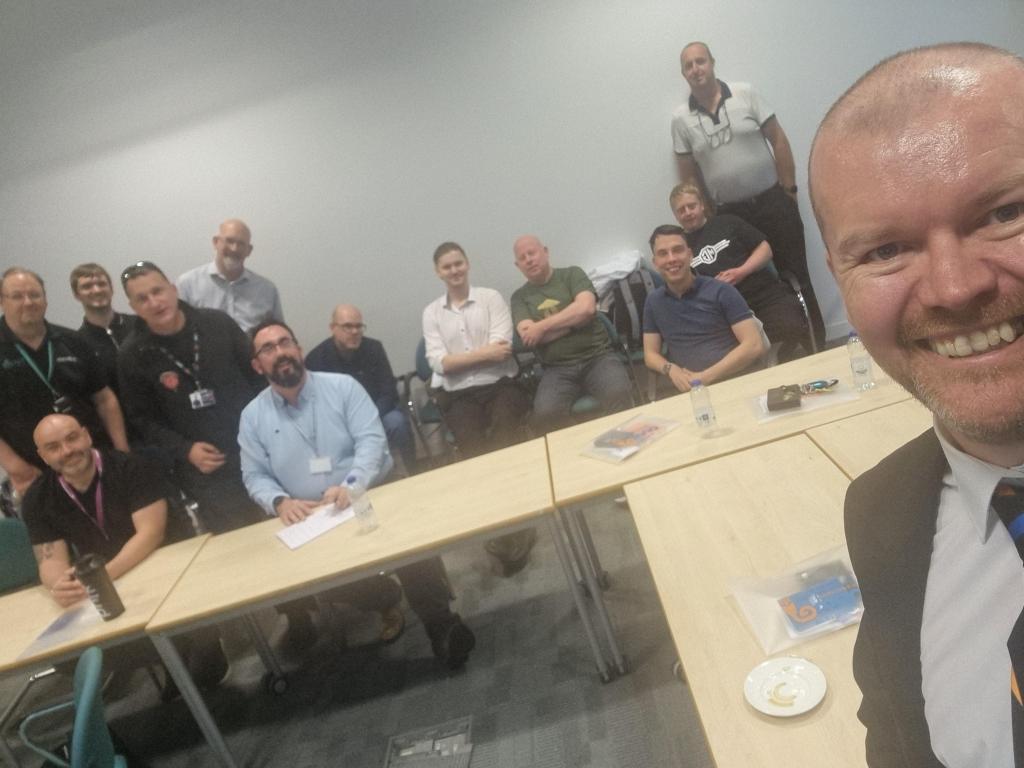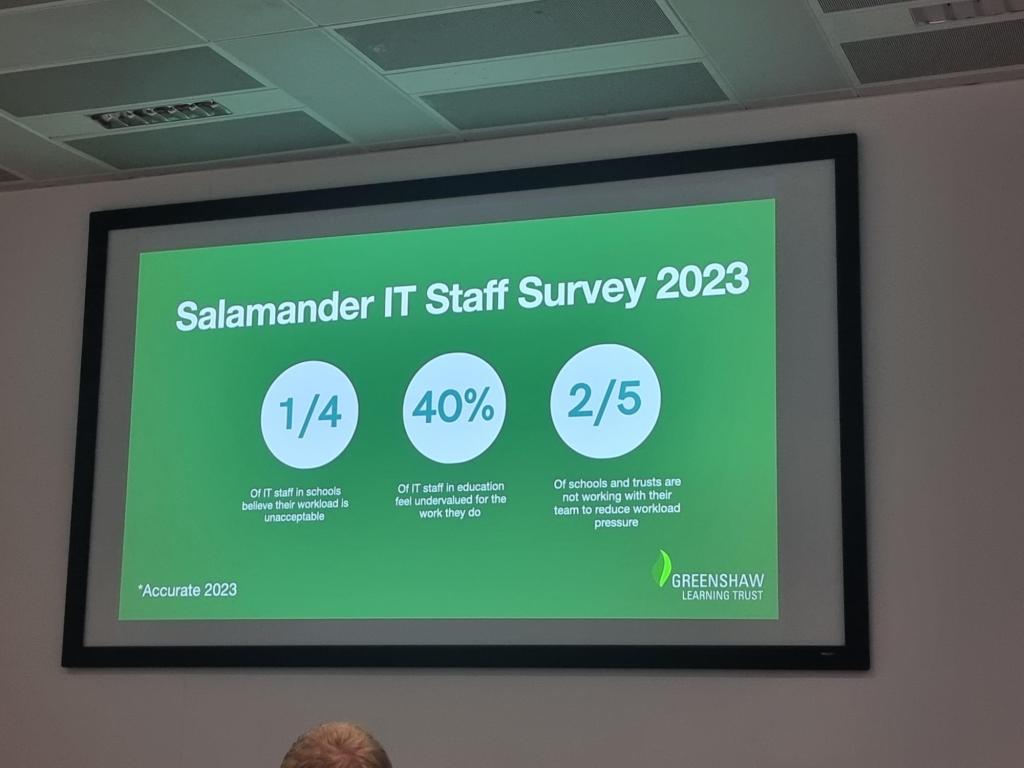
Last week I ran the ANME’s South West meeting, once again allowing me to take part in some of the excellent discussion with other IT staff in schools across the South West. It was also great to see fellow ANME ambassador, Andrew White, back at the meeting after his recent health concerns. As always the event proved useful in allowing IT staff from schools in different contexts and at different stages in their digital journey to get together and share thoughts and ideas. It fits perfectly with the David Weinberger quote I so often use, “the smartest person in the room, is the room”. In seeking to manage the increasing pace of technology and change, sharing and seeking collective solutions is likely to be our best chance to be successful and to thrive or flourish.

One of the sessions, delivered by Michael Bewis focussed on wellbeing among school IT staff. Now I found this session to be very refreshing as when looking at workload in schools the focus is often on teachers with well known research such as the teacher wellbeing index seeking to assess stress and workload of teaching staff over time. But what about the IT staff, who are often quietly working behind the scenes to ensure the technology works as it should, often being very busy to make sure everything works, even when it all seems to be working well, never mind how hard they work when things aren’t going so well. As such it was good to see some feedback from a survey of IT staff, involving SalamanderSoft and the ANME itself in gathering the data. That ¼ of IT staff feel their workload is unacceptable and 40% feel undervalued is concerning although I do think this goes to a wider issue in education, including with teachers. Now budgets, and linked to this staffing, were mentioned, however this is outwith our control, however our expectations in terms of what is done, when and to what standard is within our control, plus communication is also within our control. We can therefore focus on what is within our control to hopefully seek to reduce workload and increase job satisfaction. In the session I mentioned my current 3 keys words or entropy, prioritisation and reasonableness. That we need to accept that education as a social endeavour has so many variables that there will also be a bit of the unexpected and a bit of chaos, but in dealing with this we need to prioritise what matters and do what we reasonably can. I also note in relation to workload I have concerns as to the efficiency narrative, and trying to solve the issue by being more efficient. This invariably leads to simply doing more but maybe we should be asking what matters most in schools, in teaching and learning and in IT, and then focussing on this rather than simply trying to do more. I also think a key part of workload isn’t the tasks, but the culture of the team and of the organisation. Is working long hours, being first in and last out, being knackered seen as the sign of a good employee? Or is a good employee the person who gets the job done but knows when to say no or “not now/yet”, and sometimes works late, but other times leaves early, who clearly seeks to balance out work with their wider life? It is the little things which build the culture, so do the little things in your school build a culture of wellbeing or not? And as to wellbeing groups and initiatives, I am not a fan, as all too often these are just things tagged on in the interests of being seen to do something, rather than the cultural change which is really needed, and for cultural change to work it needs to be at all levels, at teacher and support staff level, middle leaders, senior leaders and even governors and trustees.
The other session delivered by Toby Ratcliffe, another ANME member, discussed building a resilient IT support team. I liked the acknowledgement that things are never simple and plans seldom progress as you planned. This aligns nicely with my concept of entropy as mentioned earlier. Some of the other ideas presented matched very much with mine such as the importance of gathering data in relation to the performance of the IT team as a whole. I personally make use of data from our help desk ticketing system as well as office 365 usage and storage information plus also data gathered from an annual staff and student perceptions survey. This data allows me to highlight all the work my team do plus the ongoing increase in work as we have more systems, more users and more data to support, helping others understand the nature of the work we do on a day to day basis, never mind when things go a bit wrong. The annual perceptions survey, as Toby noted, tends to be very subjective however, this aside, having some data is surely better than having no data, as would be the case if you never run a survey. The key about satisfaction surveys in that it allows you to make decisions based on data, or data driven decision making as it may be referred to.
Overall, it was a very useful and interesting day, with lots of sharing and discussion above and beyond the two presentations mentioned above. Discussions dipped into cyber security and business continuity, esports (and I note this came up randomly and not of my doing…..honestly 😉) and Windows 11 deployment among other areas.
So that’s the last of my ANME meetings for this 2023/24 academic year, but I look forward to 2024/25 and further meetings in the new academic year. Through sharing and collaboration we can best meet the challenges of the future, especially where technology is moving at such an increasing pace.

